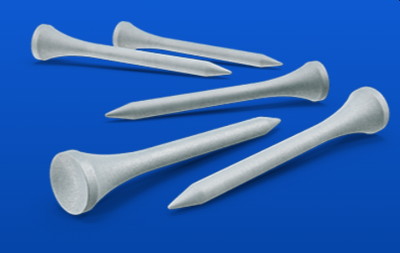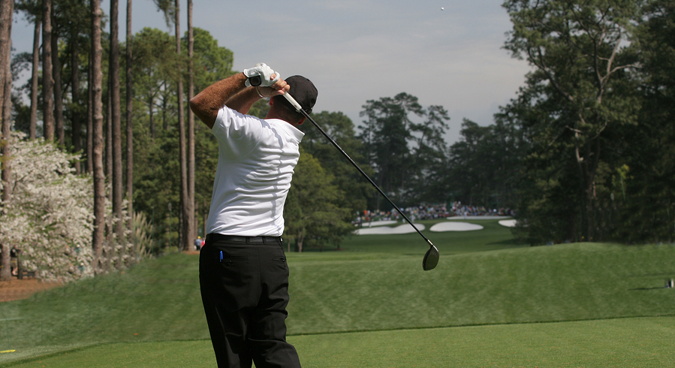Golf Betting Sites & Offers
 Golf is a hugely popular sport to bet on and better technology now means you can really get into tournaments and easily track your players among large fields.
Golf is a hugely popular sport to bet on and better technology now means you can really get into tournaments and easily track your players among large fields.
The sport is one of the highest paying around in terms of prize money, with top golf earners cashing in on over $100 million in their careers these days. Sponsorship is massive in golf, especially from the bookies themselves, and as a consequence you can be sure to find great golf offers for both major and minor PGA, European Tour, Champions Tour and even LPGA events.
The game of golf has a perfect structure for betting on. Whether you want to bet on an outright tournament winner and sit back and watch or bet hole by hole there is a wager for you.
New customer golf sign up offers and promotions can be found on our home page. New and existing customer deals for the majors can be found on our events pages.
Major Golf Tournament Pages








Golf Free Bet, Insurance & Money Back Offers


If you back five or more players to win in the same golf tournament with Fitzdares you will receive an in-play matched free bet to the average stake of your first five bets. This applies to pre-tournament, single bets on the outright market only.
The maximum free bet is £10, credited within 12 hours of teeing off. The free bet can only be used on the in-play outright market for the same tournament and must be placed at odds of 1/2 (1.5) or greater. Free bets expire after 72 hours.
Place five pre-tournament bets and get an in-play matched free bet. Pre-tournament outright singles only. Maximum one free bet per tournament. Maximum free bet is £10. Free bet minimum odds 1/2 (1.5). 18+


If you back a player in the 3 holes ahead market with Boylesports they will payout early if that player goes 3 holes ahead at any stage, even if they eventually go on to lose.
18+. Online only. Applies to bets placed on Golf 3 Holes Ahead market. Get paid out as a winner if your selection is winning by 3 Holes, even if they lose. Applies to Singles & Multiples. T&Cs apply.
Golf Extra Places and Enhanced Terms

Coral have paid extra places on all major golf for so long that they don’t even advertise it as a promotion. You will get 7 places as standard at all larger events or at least 6 for the smaller field tournaments. For some of the big majors Coral have been known to offer a staggering number of places, up to 10 on occasion.
Each-way odds for a place are usually 1/5 but for some of the higher profile majors, etc., expect 1/4 the odds. Coral are also one of the best for market depth when it comes to the sport.
Best Golf Bookmakers
Coral
There is no fanfare at Coral, just honest reliable golf terms for punters. They provide extra places and better odds as standard and don’t even advertise it, tells you a lot.Betfred
Betfred are a golf betting site that rewards the regular punter with instant payout, free bet and insurance deals that can save you a packet in the long run.Golf Betting Guide
 Golf has significantly more markets to bet on than you might initially think. Despite the sport being made up of long tournaments with big fields of players there are more lines to out your money on than just the outright winner.
Golf has significantly more markets to bet on than you might initially think. Despite the sport being made up of long tournaments with big fields of players there are more lines to out your money on than just the outright winner.
This is a great tactical sport where the result all comes down to the individual player. The nature of the play means small factors can have big effects and this makes golf betting a favourite for high stakes punters. Read more about golf betting and terms below.
Tournament Winner

The most common pre-event bet on golf is the overall tournament winner. This is attractive for many as large fields (usually 72 players) means the odds for the favourites can be very good at around 6/1 to 10/1. If you back an outsider you can get massive prices of 500/1 or more
Large field sizes also mean you get a lot of places when betting each-way. For the bigger 72 hole events you will usually get 5 places each way but with the likes of Sky Bet, Paddy Power and Boylesports you can regularly get up 7 places, or even 8 places for a major.
This market is the most completive golf market between bookmakers so if you shop around you can get much better prices, differing by over 50% between some sites. If you are betting on one of the majors, or the Ryder Cup, make sure you look for enhanced odds sign up deals too for the bigger players (e.g. 50/1 Rory McIlroy to win The Open). When available these will be listed on our golf event pages and our home page.
Dead Heat Rules

Golf tournaments result in more dead heats more than pretty much any other sport. This is due to the nature of the scoring making it easily possible for two or more players to end with the same number of shots.
If first place is tied at the end of an event a play-off is usually held. The format of this varies depending on the tournament and may comprise of playing the 18th hole over, a selection of holes, or rarely a whole round. Whatever happens in this situation play will continue until a winner is found.
For second place and below there is no play-off, the final score stands, so if more than one player is tied for a place this will be a dead heat.
Many bookies apply the dead heat rule to each-way bets. This means if the number of players occupying the each-way places is greater than the number of places themselves then your stake is reduced by dividing the number of players by the number of places remaining.
For example, you’ve bet each way with 5 places but at the end of the event two players are tied for 5th place. The dead heat rules stipulate you divide the number of places remaining (in this case 1) by the number of players in the dead heat (in this case 2). This results in 1/2 and therefore your stake amount is reduced by half to compensate.
In another example three players are tied for fourth place, now we divide the number of players (3) by the number of places (2), resulting in 1/3. This means each-way stakes for those three players are reduced by one third.
One common offer for golf is the money back 2nd (sometimes even third or fourth too) and these generally include ties. This means if your golfer is tied for second with one or more other player you will still get refunded and for regular golf bettors these deals (commonly available from Boylesports for example) offer excellent long term value.
2/3 Ball and Accumulators
 The big field sizes at top golf events means that if you had to wait for every player to complete each hole in turn then the match would last a week or more. Therefore golfers play holes in groups of two or three, often termed 2-ball or 3-ball.
The big field sizes at top golf events means that if you had to wait for every player to complete each hole in turn then the match would last a week or more. Therefore golfers play holes in groups of two or three, often termed 2-ball or 3-ball.
Golfers tend to play in 3’s in the first two rounds prior to the cut and then 2’s for the final two rounds. It is possible to bet on the winner of each 2/3 ball play over 18 holes (or indeed even single holes) separate to the tournament. This is a good option if you fancy a player to win their individual battle but you don’t think they will win the round/match.
With golf events being a single tournament with individual players it is difficult to see how you can place accumulator bets. 2/3 ball play however lends itself perfectly to placing multiple bets, allowing you to select several winners from various 2/3 ball contests.
If you are placing 2/3 ball accumulators look out for accumulator insurances or bonus to give you extra chances of winning. These don’t have to be golf specific, although there are golf acca deals around, all sports acca insurance/bonuses work just as well.
Group Betting
With a massive field of players it really can be hard to predict who will win. Bookies therefore offer group bets, these package players into individual groups and you can bet on the winner within these.
Groups can be defined by the order of play with golfers teeing off at similar times groups together, or they can be artificial, defined by the bookie.
It is possible to pick the winner of several groups and combine these together into an accumulator.
Cut, Round and Hole Betting
Seventy-two hole tournaments are made up of four rounds of 18 holes, with a cut at the end of the second round (36 holes). This means you can bet on each round or even hole independently of the tournament as a whole. You can also bet on which players will make the cut of 36 and be included in the final two rounds.
There are a few decent betting offers around for round bets, William Hill commonly offer one that gives you money back on outright tournament winners if that player wins any round but doesn’t win the final trophy. You can also find offers for player to make the cut for bigger events.
Round and hole bets are great in play and are the most popular golf live betting markets. Prices here vary dramatically so do shop around.
Top 5, 10, 20 Finish
An alternative to betting each-way on the tournament winner is to bet on a player to finish a set number of places.
Most top golf bookmakers offer these markets pre-event and these are a good option if you want to back an outsider or amateur player to do better than they are expected, but still have no chance of winnings. Do note dead heat rules will likely apply.
Top Players
Picking the top player form a region (e.g. Europe, US, Asia, Australian, English etc.) is a very popular bet in golf these days.
These wagers can be placed each-way too, although the number of places will be lower than the overall field and extra place offers for the whole tournament will not be carried though. Dead heat rules will apply.
Betting Without
If you think a player will finish well but is not going to trouble the big guns then another option to is the betting without market.
This removed the top favourite(s) from the outright betting allowing you to pick who will be the best of the rest.
Special and Proposition Bets
There are tons of special and prop bets that can be places on gold. Will there be a hole in one is an obvious example, but you can also bet on players individual performances, the ball to land in bunkers or hit an obstacle like a tree or even whether a player will wear a hat or not.
Many of these bets are specific to the bookie and odds are hugely variable, and generally not great value. These are fun bets to have a few quid on rather than serious high stakes markets. Paddy Power are great for these markets.
Odds and Payouts
Golf is one of those sports where shopping around, or at least finding a good golf bookie, can really pay off. The large numbers of players involved means markets are very big in golf and this tend to mean bookmaker odds are underestimated as they try to balance their books across a large range of selections.
Competitive lines, such as outright winner bets, are safe enough with most bookies however if betting on less common markets it makes sense to look for the best prices. Our recommended golf bookmakers above are a good place to start.
Pay outs can also vary massively. The biggest payers in the business will pay maximum winnings up to around £500,000 on all markets. Some smaller bookies may have limits as low as £5,000 however so make sure you check if placing big bets or backing long odds.
Golf History, How To Play, Rules & Competitions

There are some sports that are popular because of the intricacies of the way that they work, with the likes of Formula 1 finding an audience because some people love to think about the smallest factors that can make the biggest difference. Other sports are loved because of the immense physical exertion and commitment that its competitions have to make to reach the top of the game, such as boxing. Then there’s a host of various sports that people like so much because, simply put, they can play themselves and often feel that, but for an unfortunate twist of fate, they could have done it professionally. Football is an obvious example, as is tennis. Yet the one that so many people around the world must have considered where they’d be if they’d focused on it more specifically at a younger age is surely golf.
Bob Hope once said, “If you watch a game, it’s fun. If you play at it, it’s recreation. If you work at it, it’s golf”. That’s the perfect summary of a game that can infuriate as much as it can delight, with every player not only playing against the environment and the sport, but their own mentality. It’s one of the loneliest games imaginable, given that the moment you pull the club back to strike the ball there’s nothing to stand in the way of you doing so successfully apart from yourself. Little wonder, then, that so many people love it and hate it in equal measure! Yet it’s also the sort of game that you could have played for years without actually knowing much about. Whereas with football or rugby you’ll get the most out of it by following a team, you could have gone to your local municipal course to play every day of the week and never know the in-depth side of the sport. Here we’ll give you something of a cheat sheet to get you up to speed.
History Of Golf

As long ago as the thirteenth century, Dutch people played a game that involved hitting a ball made of leather towards a target that was located several hundred yards in the distance, with the winner being the person that was able to get the ball from A to B in the least number of shots. Though that does sound remarkably like golf, it’s only linked to the sport in the way that people kicking something round with their feet sounds a bit like football. The difference between that and the game that we know and love today is marked, with the major distinction between the two being the application of a hole that the ball had to be knocked into in order for a player to be declared the winner.
Ask anyone who knows even the slightest thing about golf as a sport and they will tell you that the game was invented in Scotland. Such is the love of the sport North of the border, the first time it was officially mentioned came in an Act of Scottish Parliament that was signed in 1457. We say the ‘love of the sport’, but in actual fact it received its mention because Scotland’s King James II felt as though the game, alongside football, was too much of a distraction to those that were supposed to be training for the military and so he banned it. Archery was seen as the more relevant sport to those that should have been protecting Scotland, so that was the only pursuit that was permitted by King James. It wasn’t until the Treaty of Glasgow was signed in 1502 that restrictions on the playing of golf were lifted.
Nowadays, of course, Scotland makes a huge amount of money thanks to the game of golf; not bad for a sport that was declared ‘unprofitable’ towards the end of the fifteenth century! The likes of the Old Course at St. Andrews is one of the most famous golf courses in the world, pulling in hundreds of thousands of visitors who wish to see where the sport was ‘born’. It almost certainly wouldn’t happen if not for the expat Scots, departing immigrants and soldiers who helped to spread the game around the world throughout the eighteenth century. It took nearly one hundred years for the sport to truly catch on away from the British Isles, however, with the first known records of a golf course away from Britain citing one in Calcutta in 1829 and another in Pau in 1856.
In the thirty-four years between 1880 and 1914, Britain saw ten golf courses develop to become more than one thousand. There’s an argument that the sport didn’t truly take hold globally until the formation of the United States Golf Association in 1894, steadily seeing the number of courses in America grow to more than two hundred and fifty in 1910. The South Carolina Golf Club had been formed in 1787 but, as with many sports that are exported to the other side of the Atlantic, it took a long while to find its audience. From there it grew and grew, becoming one of the most popular sports on the planet throughout the nineteenth and twentieth centuries. According to the Royal & Ancient, the sport is played in more than two hundred countries and has over sixty million players on a regular basis.
Golf Rules and How To Play The Game

When boiled down to its most essential components, golf involves a player using clubs to move a ball from one spot, known as the ‘Tee’, to another spot, known as the ‘Hole’. The fewer hits the player takes to get it into the hole, the better. That might sound simple enough, of course, but it’s a sport that has driven many people absolutely crazy since its invention. It’s perhaps best summed up by the professional golfer Gary Player who said, “Golf is a puzzle without an answer. I’ve played the game for 50 years and I still haven’t the slightest idea of how to play”. The simple description of the sport of golf belies the more intricate nature of its rules, including such unspoken things as course etiquette and the fact that you’re not allowed to clean your ball during a round unless you need to do so to identify whether it’s yours or not. Every hole has a number off strokes you should be able to complete it in, which is known as its Par.
There are also several different ways of playing a round of golf when you’re doing so competitively. The simplest and most traditional manner is that you and your opponent make your way around the course, keeping track of how many shots you’ve each taken. At the end of the eighteen holes you add up your shots and the player that has taken the fewest wins. That’s known as Stroke Play, yet that’s just one way of playing, with others being decided before you begin and often depending on how many players there are taking part in the game. Here’s a look at each of the variations on how you can play a game of golf:
- Match Play: This involves each hole being played for individually. You could take ten shots on the first hole compared to your opponent’s two and they would be one hole up, or +1. If you then take three shots on the next hole compared to your opponent’s four then you’ll have won that hole and it will go back to being Evens, or E. At the end of the eighteen holes the number of shots you’ve taken is irrelevant, but the number of holes you’ve won counts.
- Stableford: Invented on a golf course in Wallasey, Merseyside, Stableford sees players given a score depending on how many shots were taken to complete the hole compared to the par of it and the par of the player. If it takes you two or more shots than the allotted par, for example, you get zero points, whilst if you manage to get four under par you get six points. The player with the most points at the end of the round wins in Stableford.
- Foursomes: Played in teams of two, each of the teams had one ball and takes it in turn to take a shot. This game can be scored using the Match Play or Stroke Play system and is a good way of playing if you have two good players and two others of the same ability as each other who can join up together.
- Four Ball Better Ball: Again, this requires two teams of two but every player plays the hole and the team takes the score of the better player.
- Greensomes: Similar to Fousomes, except every player tees off and then a team chooses which is the best lie to play from, collecting the other ball and playing on from there.
- Bloodsomes: The same as Greensomes, with the exception being that the opposition chooses which shot you have to play on from.
- Scramble: This is for larger teams, usually of four. Everyone tees off, then the team selects the best ball and all players move their ball to that location for their next shot. They continue to do this throughout, always choosing the best location to play from.
- Texas Scramble: The same as Scramble, except each team member takes four shots from the tee. This is supposed to stop teams from always going with the shot of the best player, but only works if all players are around the same standard.
Major Golf Tournaments & Competitions
 Golf is a sport that has numerous small competitions played globally on a regular basis, but there are also some that are known, interestingly enough, as ‘Majors’. There are also some that are played every few years, as this list will demonstrate:
Golf is a sport that has numerous small competitions played globally on a regular basis, but there are also some that are known, interestingly enough, as ‘Majors’. There are also some that are played every few years, as this list will demonstrate:
- The Masters – Played every April at the Augusta National Golf Club in the US, The Masters was started in 1934 and is considered to be on the four most prestigious tournaments in golf. Since the 1949 the winner has been given a green jacket in honour of their success, usually put on them by the previous year’s winner. They then return the jacket to the clubhouse the following year, though it remains their property and is simply stored there for them.
- The U.S. Open Championship – Hosted by the PGA at golf course around the United States, it requires players to take part in four rounds of eighteen holes of golf, with the overall winner being the player with the lowest total score at the end of those four rounds.
- The Open Championship – Sometimes referred to as the British Open, this is the British equivalent of the US Open. Run by the The R & A, it’s the only Major to take place away from the U.S. It’s the oldest of all of the Majors, having been established in 1860 and is played at a different course every year.
- The PGA Championship – Hosted by the Professional Golfers’ Association of America, the PGA Championship is the final Major of the year and takes place at a different U.S. golf course every year.
- The Ryder Cup – Taking place on a biennial basis, this is a tournament that sees players from the United States take on players from Europe. The venue alternates from one continent to the other every year, each team puts forward twelve players. The captain chooses which players will take part in the four fourballs and four foursomes matches that take place on the first two days, with all twelve players playing singles matches on the final day. If a match is won then one point is awarded, with a half-point given if the match is draw. At the end of the three days, the team with the most points wins.
- The President’s Cup – This is basically the same as the Ryder Cup, though instead it’s the United States versus the Rest Of The World.
Golf Key Facts & Figures
| Competition | Record Winner |
|---|---|
| The Masters | Jack Nicklaus |
| The U.S. Open | Willie Anderson / Bobby Jones / Ben Hogan / Jack Nicklaus |
| The Open Championship | Harry Vardon |
| The PGA Championship | Walter Hagen (Match Play Era) / Jack Nicklaus (Stroke Play Era) |
| The Ryder Cup | United States |
| The President’s Cup | United States |






 ;
; ;
; ;
; ;
;

